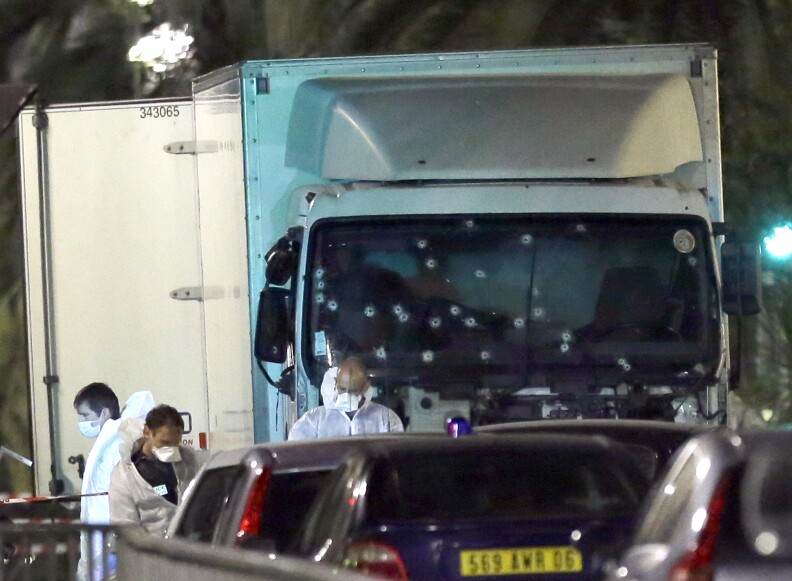As a large crowd gathered along the waterfront in Nice, France, Thursday evening to watch a Bastille Day fireworks celebration, a truck driven by Mohamed Bouhlel, 31, plowed through the crowd for more than a mile along Promenade Anglais, officials said. Bouhlel then reportedly got out of the vehicle and opened fire on fleeing spectators. At least 84 were reported dead and many more were seriously injured.
As investigators abroad try to put together the pieces of what happened in the seaside resort city, civilians and law enforcement officials here at home must face some familiar questions: Are we safe in crowds? And how do we prevent more attacks like these from happening?
For answers, Take Two spoke to Erroll Southers, the director of Homegrown Violent Extremism Studies at USC.
Highlights
I want to start with a look at the kind of attack we saw yesterday: a truck was driven through a large crowd of civilians. How would you classify this sort of attack?
It's classified as a vehicular assault. You could also call it a weapon of mass destruction. But this is not an uncommon attack; Al Quaeda called for this kind of attack years ago. It is, unfortunately, very common in the Middle East, particularly in Israel. Israel had 48 attacks in the last several years — 36 last year alone. So it is a method of attack that's effective and one that is low tech and easy to implement.
There's a phrase that we've heard a lot about the Bastille Day celebration; that's "soft target." What does "soft target" mean?
Well, a soft target means one that doesn't have the security protocols that are going to be layered that would necessarily detect or deter or defend against someone doing what he did. In other words, he was able to drive that vehicle up over the curb and get to his intended target. They didn't have barriers or Jersey barricades in place. There was no checkpoint. There was nothing that would have made it more difficult to get to in terms of access.
How are factors in France different from Factors here in the US? Or are they not that far off?
They're not that far off. There's a heavy military presence at the airport, even heavier presence at the metro stations. When I was there in February, which was before the Brussels attack, people were on edge. It was almost as if they were waiting for another shoe to drop.
They have some challenges with regards to inter-agency cooperation and sharing. I wouldn't say that they're as challenged as we may have been before 9/11, but they're not there yet...
Press the blue play button above to hear the full interview.



